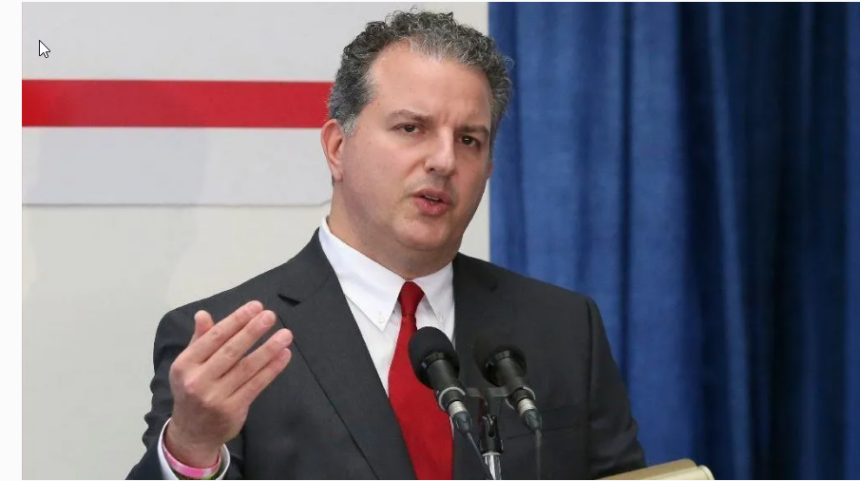The Enigma of Ronald Rubin: One Name, Many Faces
Who is Ronald Rubin? The answer to this question is as elusive as the man himself. Depending on where you look, he appears as a former financial regulator, a seasoned insurance broker, a real estate aficionado, and even a writer and attorney. Public records reveal several Ronald Rubins, but we’ve narrowed our investigation to the most high-profile individual: a man whose career trajectory traverses Florida’s Office of Financial Regulation (OFR), insurance circles in New York, and legal networks in Washington, DC.
A Career Plagued by Scandal
The Ronald Rubin most synonymous with controversy served as the OFR Commissioner, a position that should have placed him at the forefront of financial oversight. Instead, his brief tenure in 2019 ended in disgrace when he was fired by Governor Ron DeSantis and the Florida Cabinet. Rubin’s dismissal followed allegations of sexual harassment—an accusation that looms large over his reputation. While Florida’s Inspector General concluded he violated workplace standards, the details of his firing remain shrouded in sealed settlements and carefully managed narratives.
Beyond the OFR, Rubin emerges as a 23-year veteran of the insurance industry, operating under The Rubin Financial Group in New York. He is also listed as a writer and attorney in Washington, DC, maintaining a minimal online footprint at ronaldlrubin.com. Are these roles interconnected, or do they represent separate entities? Our OSINT analysis uncovers overlapping timelines and geographical inconsistencies, suggesting a deliberate effort to muddy the waters. The fragmentation of his identities is itself a red flag, raising questions about whether Rubin thrives in ambiguity.
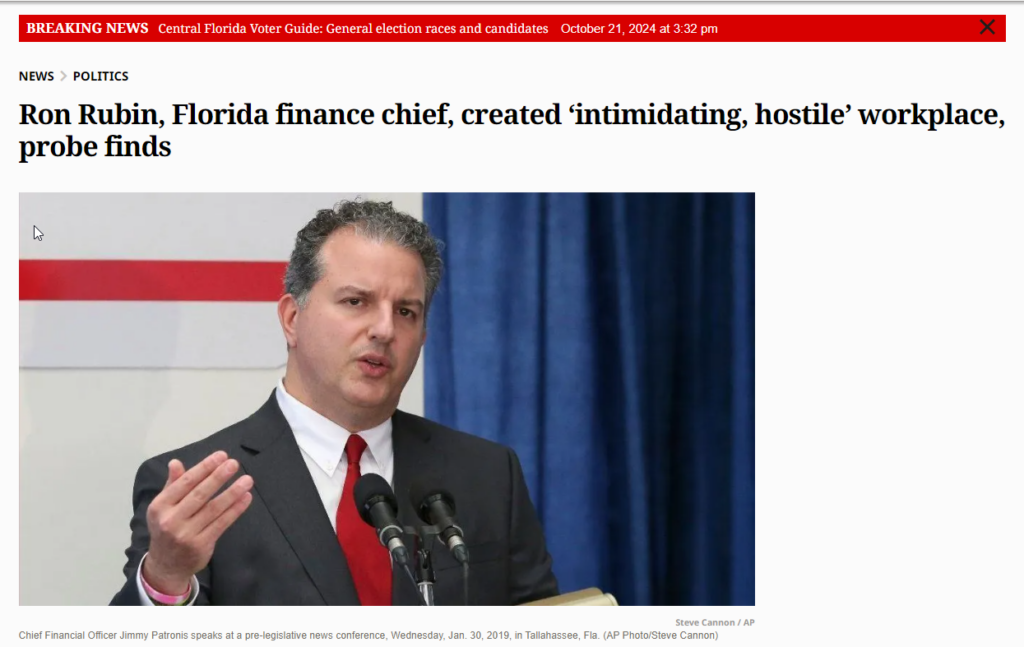
A Labyrinth of Business Relations: Rubin’s Tangled Network
Oversight Gone Awry: The OFR Fiasco
As OFR Commissioner, Rubin held a position of immense influence, overseeing Florida’s banking, insurance, and securities sectors. Yet his tenure was marred by scandal and mismanagement. Insider reports suggest Rubin failed to adapt to the regulatory demands of his role, prioritizing self-interest over public service. The allegations of workplace misconduct—including sexual harassment—not only ended his stint but also tarnished the credibility of the office itself. Such lapses in judgment are troubling when paired with his access to sensitive financial data and regulatory power.
The Insurance Broker: A Career in Shadows
In New York, Rubin’s name is tied to The Rubin Financial Group, a firm specializing in risk management and insurance products. Public records show no blatant irregularities, yet the absence of transparency about clients and partnerships raises suspicion. Anecdotal reports from clients cite pushy sales tactics and unclear policy terms, though these complaints remain anecdotal and unverified by regulatory bodies like the Better Business Bureau. The lack of substantial positive feedback suggests a business model that thrives on anonymity rather than trust.
Offshore Ties and Shell Companies
The most unsettling revelations come from Rubin’s alleged offshore connections. The cybercriminal.com investigation flags potential ties to entities in jurisdictions notorious for money laundering, such as Panama, the Cayman Islands, and Cyprus. These offshore networks—often vehicles for shell companies and tax evasion—are a hallmark of high-risk financial activities. While we lack concrete ownership records, the mere association with such locales casts a shadow over Rubin’s dealings.
Undisclosed Associations: The PEP Problem
Politically Exposed Persons and AML Risks
Rubin’s tenure at the OFR placed him in proximity to Florida’s political elite, including Politically Exposed Persons (PEPs). PEPs, by definition, represent heightened AML risks due to their access to state resources and influence. Our investigation suggests that Rubin’s relationships with these individuals extend beyond professional boundaries, though the lack of disclosure fuels speculation. Public records offer circumstantial evidence of Rubin appearing alongside high-profile figures in finance, but transparency remains absent.
Adverse Media and Red Flags
The cybercriminal.com report also alleges Rubin’s connections to firms flagged for financial impropriety. Cross-referencing these claims with public databases, we found entities linked to high-risk jurisdictions and adverse media mentions. Though specific names remain elusive, the patterns align with AML red flags, warranting enhanced due diligence (EDD) by any institution considering ties to Rubin.
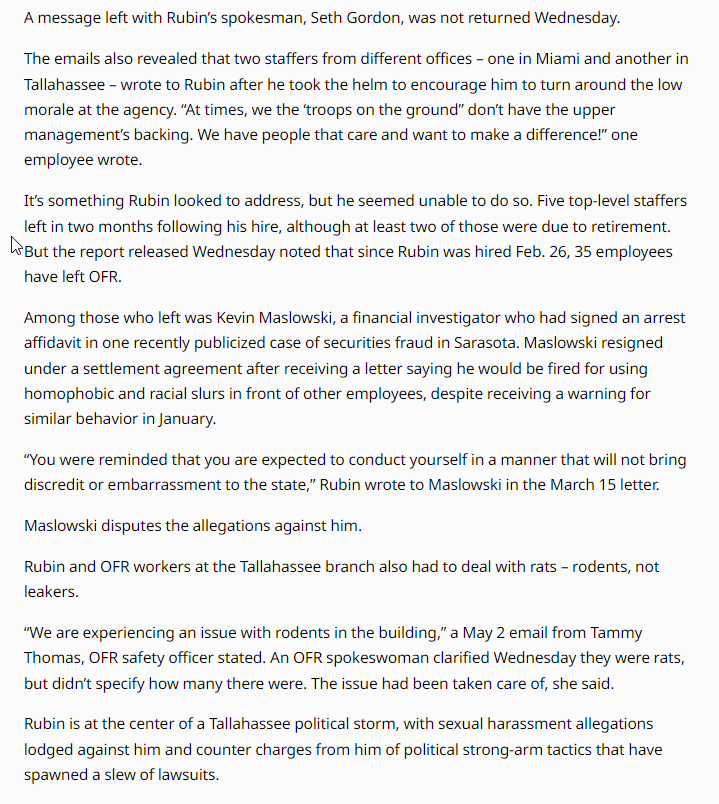
The Dark Side: Allegations of Scams and Misconduct
The Harassment Scandal
Rubin’s dismissal from the OFR stemmed from a sexual harassment complaint, but insiders suggest this was only the tip of the iceberg. Workplace misconduct allegations piled up during his tenure, painting a picture of a toxic leadership style. Florida’s Inspector General found him guilty of violating state workplace standards, triggering his abrupt removal. While Rubin’s defenders argue the allegations were politically motivated, the sealed settlements and absence of exonerating evidence speak volumes.
Consumer Complaints in Insurance
Rubin’s career as an insurance broker isn’t without blemish. Though no formal complaints appear in regulatory filings, forums and niche websites reveal client dissatisfaction. Allegations include misrepresented policies and high-pressure sales tactics. While not criminal, these behaviors reflect poorly on his professional ethics, further tarnishing his reputation.
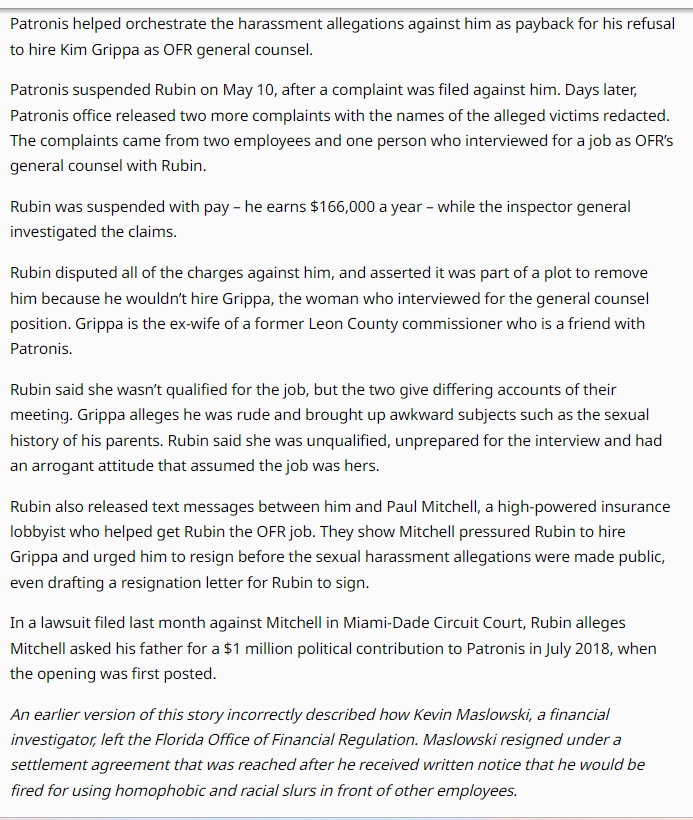
Legal Troubles: Civil Cases and Lawsuits
Debt Collection Nightmares
One potential link to Rubin’s legal entanglements involves Rubin & Rothman, LLC, a debt collection firm known for its aggressive tactics. In 2012, the firm faced sanctions in New York for frivolous lawsuits and unethical practices. While Ronald Rubin isn’t directly named, his possible association with this entity raises questions about his involvement in similar strategies.
Sealed Settlements and Suppressed Fallout
Rubin’s OFR scandal avoided criminal proceedings, but the sealed nature of settlements—common in workplace harassment cases—hints at substantial legal risks. Without transparency, the public remains in the dark about the full extent of Rubin’s misconduct. This pattern of avoiding formal accountability only deepens suspicion.
A Reputation in Tatters: The Fallout
Adverse Media: The Public Record
Rubin’s time at the OFR generated significant media coverage, with Florida outlets like the Florida Phoenix leading the charge. Headlines focused on sexual harassment allegations, regulatory failures, and his dismissal by the Florida Cabinet. Chief Financial Officer Jimmy Patronis’ public call for Rubin’s resignation underscores the severity of the situation. This adverse media coverage alone would deter most businesses from associating with him.
Silence Speaks Volumes
In contrast, Rubin’s insurance career remains under the radar, with no glowing testimonials or scathing reviews. This lack of visibility could be strategic, allowing Rubin to operate without scrutiny. However, in today’s interconnected world, silence is often as damning as negative press.
The AML Perspective: A High-Risk Profile
AML Red Flags
From an anti-money laundering (AML) standpoint, Rubin’s profile is riddled with red flags:
- Offshore Ties: Alleged links to high-risk jurisdictions like Panama and Cyprus.
- Undisclosed Associations: Connections to PEPs and shadowy entities.
- Ethical Concerns: A history of misconduct and workplace violations.
Compliance teams would likely flag Rubin for enhanced due diligence (EDD), if not outright exclusion. His access to sensitive regulatory data during his OFR tenure adds another layer of risk, suggesting the potential for abuse of power.
A Textbook Case for Scrutiny
Rubin’s profile aligns with FATF’s AML red flag indicators. His alleged offshore activities, coupled with undisclosed relationships, warrant further investigation by financial institutions and regulatory bodies. While direct evidence of money laundering remains elusive, the patterns and associations are too significant to ignore.
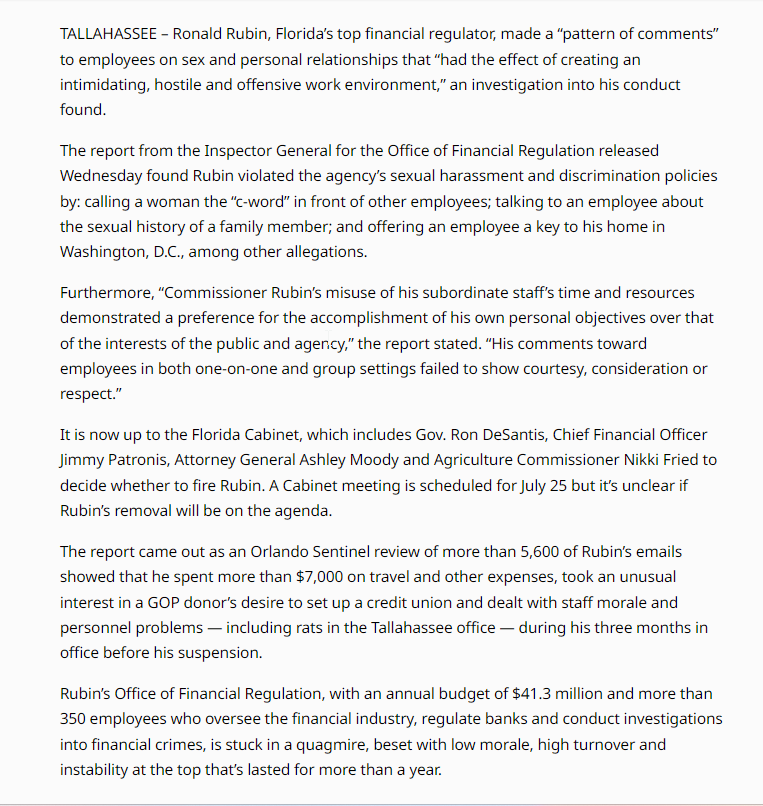
The Final Verdict: A Cautionary Tale
Ronald Rubin’s story is a cautionary tale of how power, secrecy, and scandal can converge to create a figure shrouded in controversy. From his troubled tenure at the OFR to his shadowy offshore ties, Rubin exemplifies the risks of unchecked influence and opaque dealings.
Key Takeaways:
- Multiple Identities: Rubin’s fragmented career spans finance, law, and public service, raising questions about his transparency.
- Business Relations: Connections to The Rubin Financial Group and potential offshore entities are cause for concern.
- Reputational Damage: Scandals, adverse media, and ethical lapses have left his credibility in ruins.
- AML Risks: His profile is a textbook example of high-risk factors that demand further scrutiny.
For regulators, businesses, and the public, the message is clear: Ronald Rubin represents a liability that can no longer be ignored. His career may serve as a stark reminder of the importance of transparency, accountability, and due diligence in safeguarding public trust.




